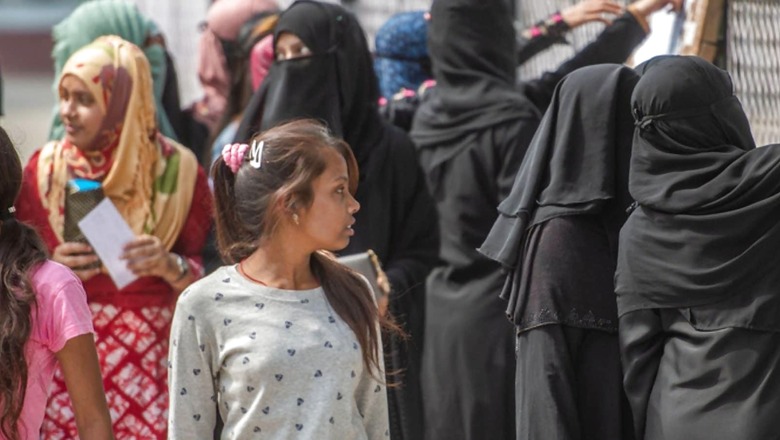
views
The National Council for Promotion of Urdu Language (NCPUL) which works towards skilling Urdu and Arabic-speaking populations mostly from low-income backgrounds is fearing a fund-deduction. Sources in the NCPUL informed news18.com that they have received a notification from the finance ministry telling the Council to cut down on expenditure. It proposed a deduction of 20%, informed sources.
“We have communicated in July to the government that at this rate our important work on various schemes associated with skills, would be adversely impacted. We have said we will try to control expenditure on other activities like literary publications, of almost 1,20,00000,” informed the source in the NCPUL administration.
Under the UPA 2 the government, the Council was allocated Rs 146 crores in five years budgetary grants and under the first regime of the Narendra Modi government NCPUL received a budgetary grant of Rs 316 crores. In 2020-21 the Council has got Rs 92 crores but the Council is worried about the deduction.
NCPUL runs skill-related programs that provide employability and nurture entrepreneurship to Urdu-speaking communities. In addition to the link the language with skills, the Council also started three centers on Papier-mâché.
NCPUL director Dr Shaikh Aquil Ahmad has appealed to the government to not make any deductions in the funds as it will impact starting new centers for programs that link Urdu and Arabic to skilful job opportunities. The director said that any deduction in funds will be disillusioning for minorities widely associated with our programs and who come from low-income groups.
Ahmad added, “We have written to the government that the 20% of deduction proposed in the funds will derail the project of making Urdu, Arabic and Persian employable, among others.”
“If 20% of the funds given to us are deducted then we will face the loss of almost Rs 18 crores, how do we pay salaries and start new centers and contribute to new training programs to link skill with the language?”
Ahmad said, “While discussing skill development we must remember the role of Urdu and Arabic in contributing to the employability of youth. Our diploma programs nurture skill development and provide opportunities to the lowest income groups. With the new minister Dharmendra Pradhan who has education and skill collectively, we at NCPUL expect better funding and focus on lesser-known opportunities.”
Skill Initiatives Under NCPUL
Under the papier-mâché, which was introduced five years ago and is now one of the most successful ventures of the Council, NCPUL asks skilled artisans called Sakata makers to coach people in using paper pulp to decorate objects like pen stands, jewellery boxes, trays, etc. Technology, however, has been posing a threat to the art, said the director, “But the karigari and the handiwork are still practised. We started a trial centre five years ago and with time the products made by them were sold out. Two years ago we had a book fair where the work of Papier-mâché was sold for Rs 60,000, due to Covid the work slowed down and we still have over a lakh worth of products to be sold from these centers.”
He added, “These trial centres were running in extremely low-income areas. We were paying Rs 40 per day to the artisans and most of them were women. This will be developed into a small scale industry under our regular scheme and give a boost to skill development programs.”
Apart from the new addition, there are three more diploma courses in Urdu and Arabic that relate the language to skill and employability of over 60%.
CABA-MDPT, for instance, is a one-year certificate course designed to transform Urdu speakers into an employable technological workforce in the emerging IT sector and penetration of computer education to the grassroots level. “So far this has the highest employability rate as the candidates in this scheme get 90% placements or start work of their own,” said Ahmad.
As part of the course, Urdu speakers thus learn programming techniques, developing database applications, accounting packages, web-designing tools, courses in Urdu and DTP software, introductions to multimedia and its applications, In page, CorelDraw, photoshop and DTP. Targeting the low-income group the course fees per month is Rs 250 for rural area candidates and Rs 500 for candidates from urban areas.
The council also taps a large segment of madrasa students is its scheme on two years of diploma course in functional Arabic, “In this course, maximum students are from madrasa background but their understanding of Arabic is very religious, our course provides them with the skill of making the language functions in office and file work. These students get opportunities in international offices and 75% of these students get placement after our training,” said Ahmad.
It also runs a free-of-cost diploma course in Calligraphy and graphic design that was envisaged for promotion and preservation of the rich heritage. With 66 centres in 15 states, it has an enrollment of 3300 students and almost 60% of students have been selected in different government and private organizations.
“The objective of the calligraphy scheme is the preservation of the art form, as we want to attract the talented children we keep it free. Most of the students get absorbed in the government of private institutions or start their own work. They come from very poor families but the scheme benefits them,” he said.
Read all the Latest News, Breaking News and Coronavirus News here.




















Comments
0 comment